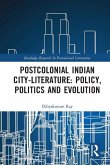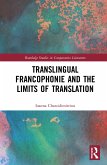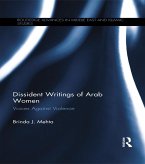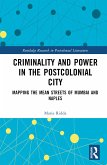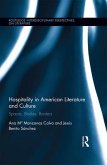This book examines the influence of postcolonial theory in critical geographical thought and scholarship, and is a lively, stimulating and relevant introduction to 'postcolonial geography' that elaborates on the critical interventions in social, cultural and political life this important subfield is poised to make.
Hinweis: Dieser Artikel kann nur an eine deutsche Lieferadresse ausgeliefert werden.
Hinweis: Dieser Artikel kann nur an eine deutsche Lieferadresse ausgeliefert werden.
'Postcolonialism offers a detailed and accessible examination of the relationships between geography and postcolonial literary theory from Orientalism to the Anthropocene. As well as a valuable primer on a vital body of theory and a rich array of existing work, Tariq Jazeel sets out a manifesto and a methodology for future postcolonial geographies.' - Miles Ogborn, Queen Mary University of London, UK
'Tariq Jazeel is one of the most important interlocutors of urban theory today. From him, comes this decisive contribution which meticulously and creatively demonstrates the necessary relationship between postcolonial thought and geographical inquiry. This book will reshape research, theory, and pedagogy.' - Ananya Roy, University of California, Los Angeles, USA
'A thought-provoking introduction to postcolonial perspectives in geography. Tariq Jazeel presents postcolonialism as a set of critical methods that help to expose the profoundly geographical politics of representation.' - Felix Driver, Royal Holloway, University of London, UK
'Tariq Jazeel is one of the most important interlocutors of urban theory today. From him, comes this decisive contribution which meticulously and creatively demonstrates the necessary relationship between postcolonial thought and geographical inquiry. This book will reshape research, theory, and pedagogy.' - Ananya Roy, University of California, Los Angeles, USA
'A thought-provoking introduction to postcolonial perspectives in geography. Tariq Jazeel presents postcolonialism as a set of critical methods that help to expose the profoundly geographical politics of representation.' - Felix Driver, Royal Holloway, University of London, UK



